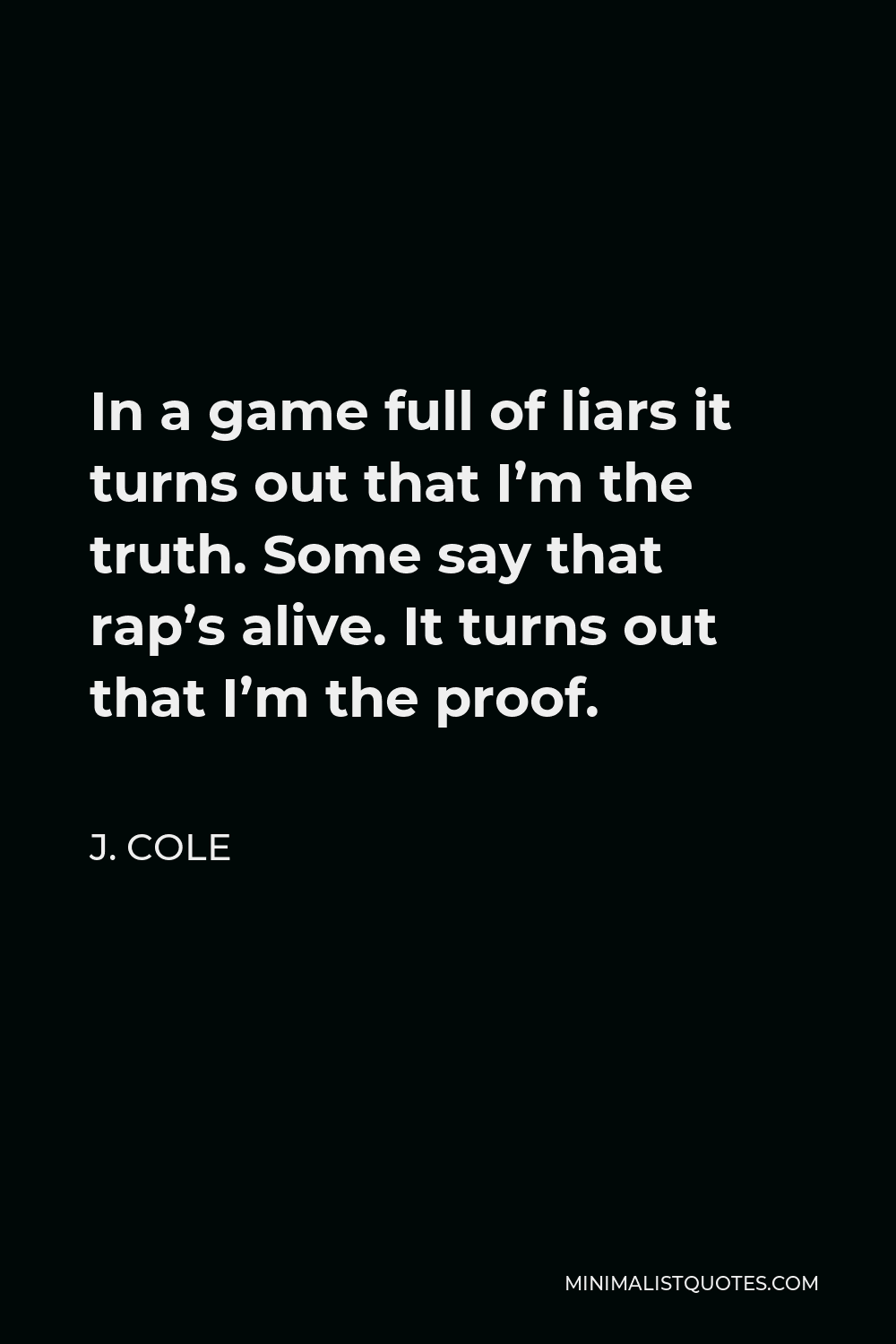J Quote In Out
J Quote In Out 7,0/10 5111 votes
Quotes tagged as 'out' Showing 1-30 of 123 “Fire False Friends as early as possible. Do it before they dig out the dream seeds you've planted! The earlier, the better; the quicker, the safer!”. These In & Out Quotes From The 1997 American Romantic Comedy Film. There are so many In & Out quotes that can help you when you are tired of being in the same old rut, and all you need is a little push, a little inspiration, a smile on the face, change of mood bring. Identifying a quote is fun and interesting. Sometimes it's as easy as a simple search, and other times it takes more elbow grease. The following is the best procedure to tracking down a quote. Question your wording. It's almost impossible to remember something you hear verbatim. And what you do remember often changes in wording over.
Using Quotations in a Paper
A research paper blends your own ideas and information from expert sources. It is NOT a series of direct quotations strung together. A common complaint of faculty is that students use too many direct quotes in their papers instead of formulating their own ideas about the paper topic and using quotes rather sparingly as one way to substantiate their point of view on the topic.
Use summaries and paraphrases most often to support your own ideas. Use direct quotations only when the information is so well presented (or in the interest of clarity, emphasis, or accuracy), that you think the exact language of the source should be used.

Remember that when you do choose to use direct quotations, you need to retain the exact wording, spelling, and punctuation of the original source. And remember, too, that just like when using a direct quotation, you must cite your source when summarizing or paraphrasing.
How to Leave Out Part of a Quotation
Yes, you can leave out words you deem unnecessary in a quotation, but you can't take out words that will change its meaning.
For example, if the quotation is 'This movie is wonderful drivel,' you can't quote it as 'This movie is wonderful . . .' and leave out the word 'drivel,' since it changes the meaning of the quotation.
- Deleting Words at the Start of a Quotation - If you are deleting words at the beginning of a quotation, simply start the quotation at the appropriate place to show that words have been left out:
The New York Times reports, however, that screening for cystic fibrosis is 'quietly creeping into clinical practice' (Swerdlow 66). [MLA format] - Deleting Words in the Middle of a Quotation - To delete words in the middle of a quotation, show that words have been omitted by using ellipses, a series of three periods separated by spaces. For example, the whole quotation is this:
'Human improvement' is a fact of life, not because of the state eugenics committee, but because of consumer demand' (Kevlev 75). [MLA format]
If you choose to leave out the middle phrases you could do it this way:
'Human improvement' is a fact of life . . . because of consumer demand' (Kevlev, 1994, 75). [APA format] - Deleting Words at the End of a Quotation - If you leave out words at the end of a quotation and the end of the quotation also coincides with the end of your sentence, place the ellipses at the end of your sentence:
Today we have the 'Republicans, who are more nationalist than socialist, and the Democrats, who are more socialist than nationalist . . . .' (Smith, 1995, 3). [APA format]
If you leave out words at the end of a quotation and more of the sentence follows, then simply work the quotation into the structure of your sentence, without using ellipses:
Today we have the 'Republicans, who are more nationalist than socialist, and the Democrats, who are more socialist than nationalist,' thus confirming the dilemma of modern U.S. politics (Smith, 1995, 3). [APA format]

Adding Information to a Quotation

You can add information to a quotation in order to define a word or phrase, to clarify the quotation's information, or to make a brief comment on the quotation's information. The information that you add always should be brief; reserve your major comments on the quotation's information to be placed after the quotation ends.
Show any added information by placing that added information in square brackets within the quote. If your computer or typewriter does not have square bracket keys, then draw the brackets in. You canNOT substitute parentheses for brackets, since they carry a different meaning. (Parentheses indicate that the added information is part of the direct quotation itself and not your own.)
For example:
Holmes stated that 'The chair on which the body was found was covered in a formerly yellow, now a brownish, blood-stained tabaret [upholstery with satin stripes]' (5). [MLA format]
(In this case, you'd need to define 'tabaret' for a general reading public.)
Or:
'He [William Dean Howells] was 'fierce to shut out' of his study the voices and faces of his family in 'pursuit of the end' which he 'sought gropingly, blindly and with very little hope but with an intense ambition, and a courage that gave way under no burden, before no obstacles' (Kirk and Kirk xxxvi). [MLA format]
(In this case, you'd need to clarify the person to whom the 'he' refers.)
Or:
'Stephen Crane's experience as a journalist [as Berryman affirms] provided the impetus for his fiction' (Walcutt 22). [MLA format]
(In this case, the writer provides a brief comment on the information to let the reader know that two major critics of Crane agree.)
Long Quotations
If you decide to use a quotation that is longer than four lines, it is not put in quotation marks but rather indented from the left.
J Quote In Outlook

Once again remember that you will need to document or show the source of the quotations you use, so make sure that you have recorded all necessary information about the source.
J Quote In Out
Using a Quote within a Quote
If you need to quote something that already includes a quotation in it, then place the regular 'double' quotation marks at the beginning and the end of the complete quotation, and use special 'single' quotation marks for the quote within the quote. It looks like this:
'Blake disposes of Menroy's definition of realism, which he calls 'naturalism in disguise' (Zwerbe 13). [MLA format]